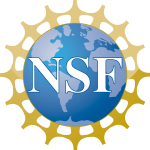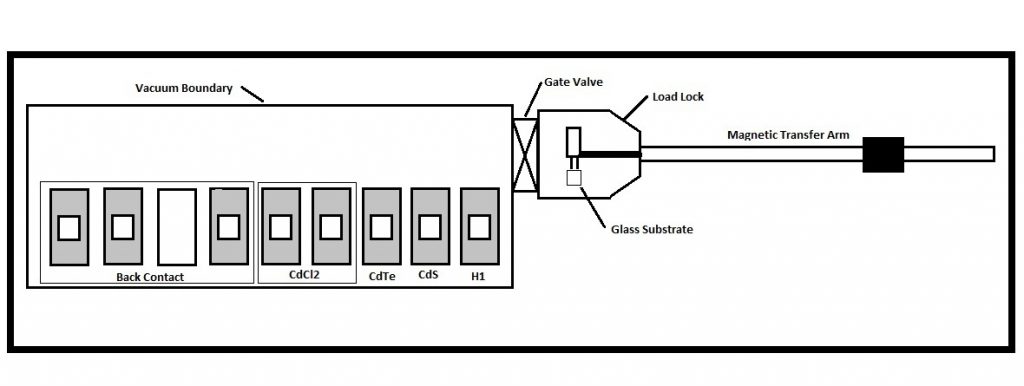ARDS (Advanced Research Deposition System)
This is a 9 source closed space sublimation tool. It is unique in the fact that all process sequences can be executed in desired time and order without breaking vacuum to fabricate the entire film stack to make CdTe based research scale solar cell. Advanced computer control of the system ensures exceptional repeatability in fabrication of test samples.

Schematic of the Advanced Research Deposition System (ARDS)
RTC (Research Test Chamber)
A cousin to ARDS shown above, RTC allows co-sublimation of materials that extends our research capabilities beyond single source sublimation. In its current configuration, RTC is used to co-sublimate CdTe and Mg to form CdMgTe films for Electron Reflector research. A shutter mechanism allows swift switch between CdTe and CdMgTe during deposition process.
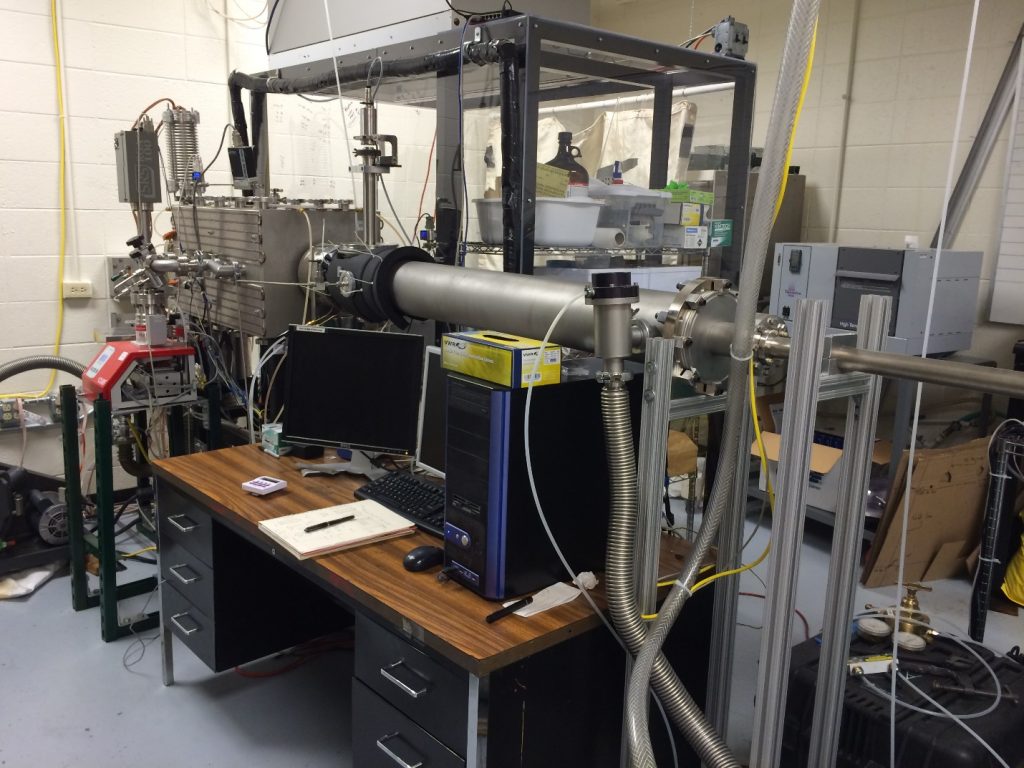
Schematic of the Research Test Chamber (RTC)
Bell Jar Passivation Tool
This tool enables passivation study using different materials and combination of materials while avoiding the issue of material cross contamination using a bell jar that is heated using IR lamps.
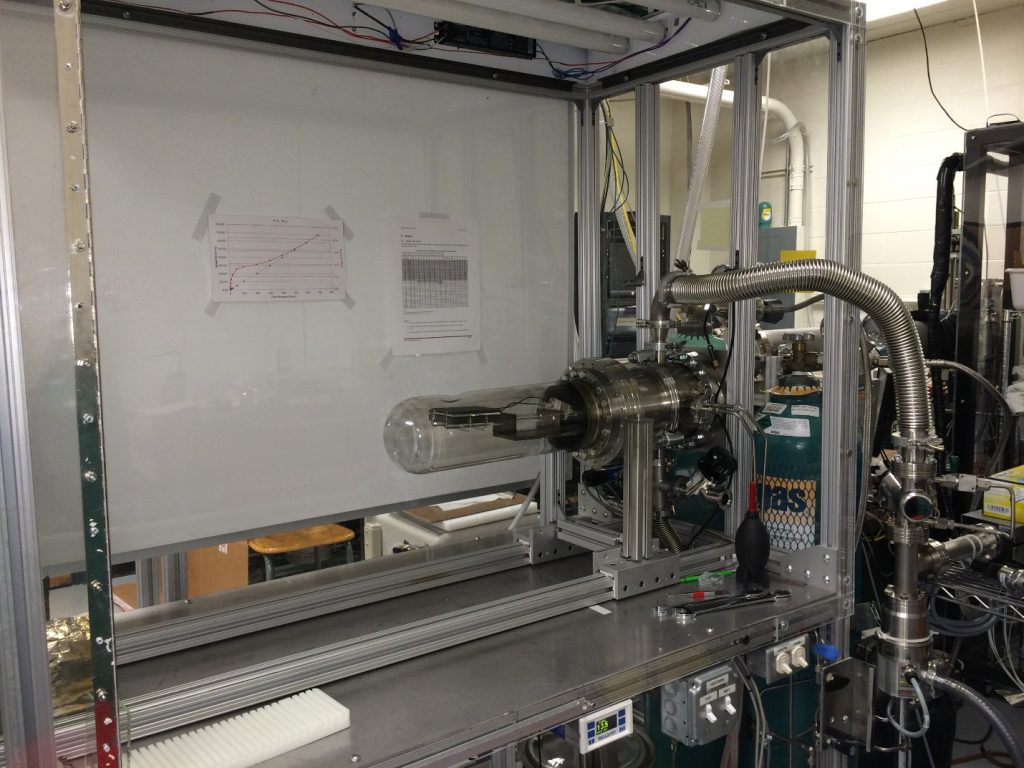
Schematic of Bell Jar Passivation System
Front Contact Sputter Deposition System
This system is used for RF sputter deposition. The main focus is front contact materials for CdTe cells, including oxides and oxygenated cadmium sulfide. Typically a 4-inch magnetron is operated at 13.56 MHz but DC can be used. A secondary gas flow can be controlled independently via computer, and substrate heating is possible. Upgrades are currently underway to add a load lock, which will lead to integration of high-transparency front contacts into the standard device process.
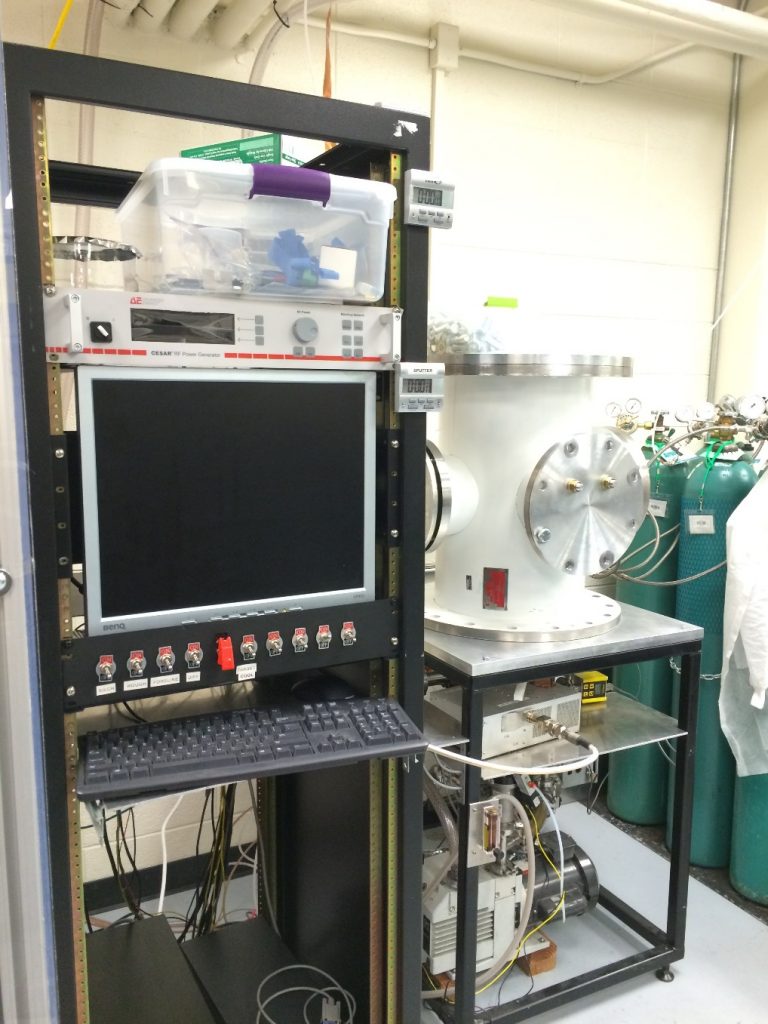
RF Sputter Bell Jar Deposition Tool
This system is similar to the front contact system but is mainly used for ternary absorbers including (Cd,Zn)Te. Typically a 4-inch magnetron is operated at 13.56 MHz but DC can be used. A secondary gas flow can be controlled independently via computer, and substrate heating is possible. The system is contained independently in a filtered environment.


